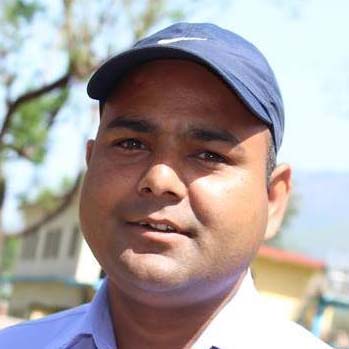Money
Land dispute stalls power line construction in Karnali
People in the province grapple with power cuts and low-voltage issues, as they are supplied by a 33 kV transmission line built 35 years ago.
Krishna Prasad Gautam
The expansion of the 132 kV transmission line has stalled again, depriving many households of regular power supply in the far-flung Karnali region.
An Indian construction company, RS Infra Project, which is undertaking the project, has repeatedly extended the completion deadline. At the same time, the land compensation dispute has not been solved for the past four years.
Due to the project's delay, people in Karnali have been facing power cuts and low-voltage problems, as they have to rely on a 33 kV transmission line built 35 years ago.
Initially, the Indian company agreed to a Rs700 million project to expand the transmission line from Kohalpur of Banke to Birendranagar of Surkhet, with a completion deadline of July 2022.
The company has extended the completion deadlines three times, with 20 months of extension in total.
According to project officials, the last deadline is December 2024. However, the project has many problems.
There is an ongoing conflict over land compensation in Baniyabhar of Banke and Subbakuna of Surkhet, which makes the project's completion uncertain.
“As the project’s progress stalls, the locals are grappling with power cuts and voltage fluctuations,” said Pahal Bahadur KC, a local of Birendranagar-6.
“We are facing power cuts five to six times an hour. The power tipping has damaged our electronic appliances.”
Padam Shahi, Karnali president of the Nepal Chamber of Commerce and Industry, said mega factories cannot be set up due to the electricity problem.
“The entrepreneurs are eager to invest in big factories in Karnali. But they are afraid of electricity problems,” said Shahi. Power cuts have become so frequent that even households are affected.
When King Birendra Bir Bikram Shah visited Surkhet in 1988, a 33 kV grid connection was extended to Dailekh, Jajarkot, Rukum and Salyan districts. According to the Nepal Electricity Authority’s Karnali office, around 140,000 households in the province are connected by the national grid.
Two years ago, the electricity authority took the national grid via Kalikot to Khalanga, the Jumla district headquarters.
However, due to unreliable supply, people are compelled to work under solar and oil lamps, said Kamala Devkota from Khalanga, Jumla. “Even when the electricity is on, the voltage is too low to properly light the room.”
“We are switching back to solar as electricity is unavailable,” said Devkota.
Despite the national grid connection, Devkota said she would not remove the solar panel installed on her rooftop. “We cannot rely on electricity.”
Power supply from the national grid is irregular, said Rajan Pandey, a trader from Manma, the headquarters of Kalikot. “We still depend on solar due to frequent power cuts.”
Dhanendra Neupane, another trader, said people like him removed solar panels after the national grid connected their village.
Rural households have started to reinstall solar panels.
As of now, there is only 70 percent progress in terms of transmission line extension, said Rabi Kumar Chaudhary, the project chief. He said that the construction of 117 towers and cable installation is going on along the Banke and Bardiya national parks.
“If the compensation row is not resolved within a couple of months, the project will not complete even in five years. We have discussed the compensation issue on 50 different occasions, but it has not been resolved,” Chaudhary said.
He said that 162 towers need to be built from Kohalpur of Banke to Birendranagar under the scheme.
The construction of 12 towers in Baniyabhar of Baijnath rural municipality in Banke and its surrounding areas has stalled due to the compensation tussle.
Skanda Sharma from Baniyabhar said that while surveying the transmission line, the project officials cheated by saying they were surveying the drinking water project. “At first, the transmission line was planned to be constructed through the national park, but with the army not allowing it, the official started surveying the village area,” he said.
Mun Prasad Sharma, a local of Baniyabhar, said that the compensation offered is minimal. Around 75 households would be displaced by the project, he said.
The local residents have filed a case at the Nepalgunj High Court over the compensation. They argue that the going rate ranges from Rs2.5 million to Rs4 million per kattha.
Tree-cutting has also been held up due to the dispute over compensation. Trees have yet to be felled along the 52 km section between Kohalpur and Surkhet.
More than 13,000 trees need to be cut down for the transmission line. Felling has been done on the Surkhet side but the work is yet to begin in Banke and Bardiya national parks.
Though a Cabinet meeting in July 2022 allowed for the trees to be removed, the problem concerns the afforestation work, said Chaudhary.
“We have already provided 63 bighas, equal to the land area taken by the transmission line, but the national parks have not given us the go-ahead,” Chaudhary said.




 15.87°C Kathmandu
15.87°C Kathmandu













